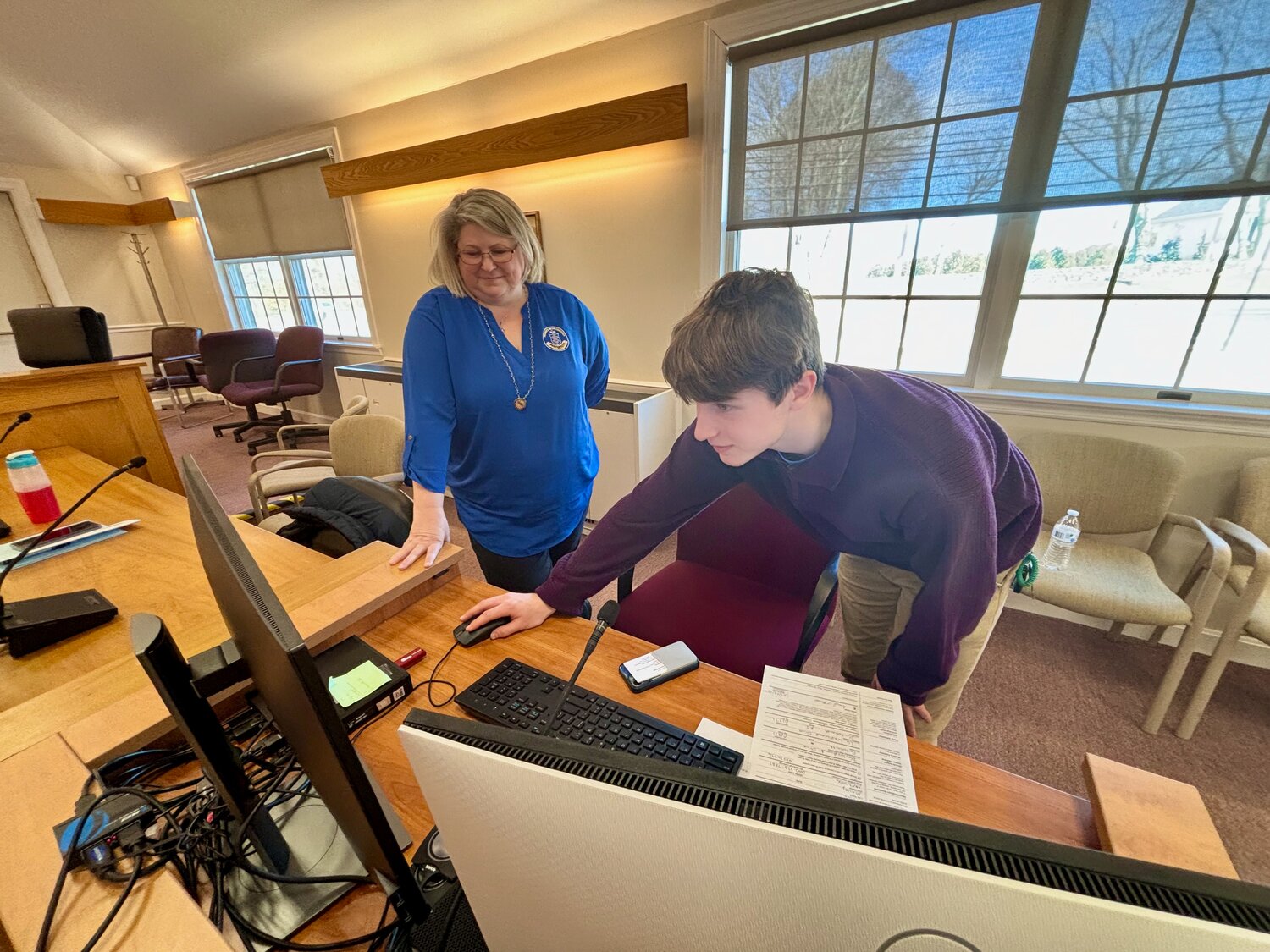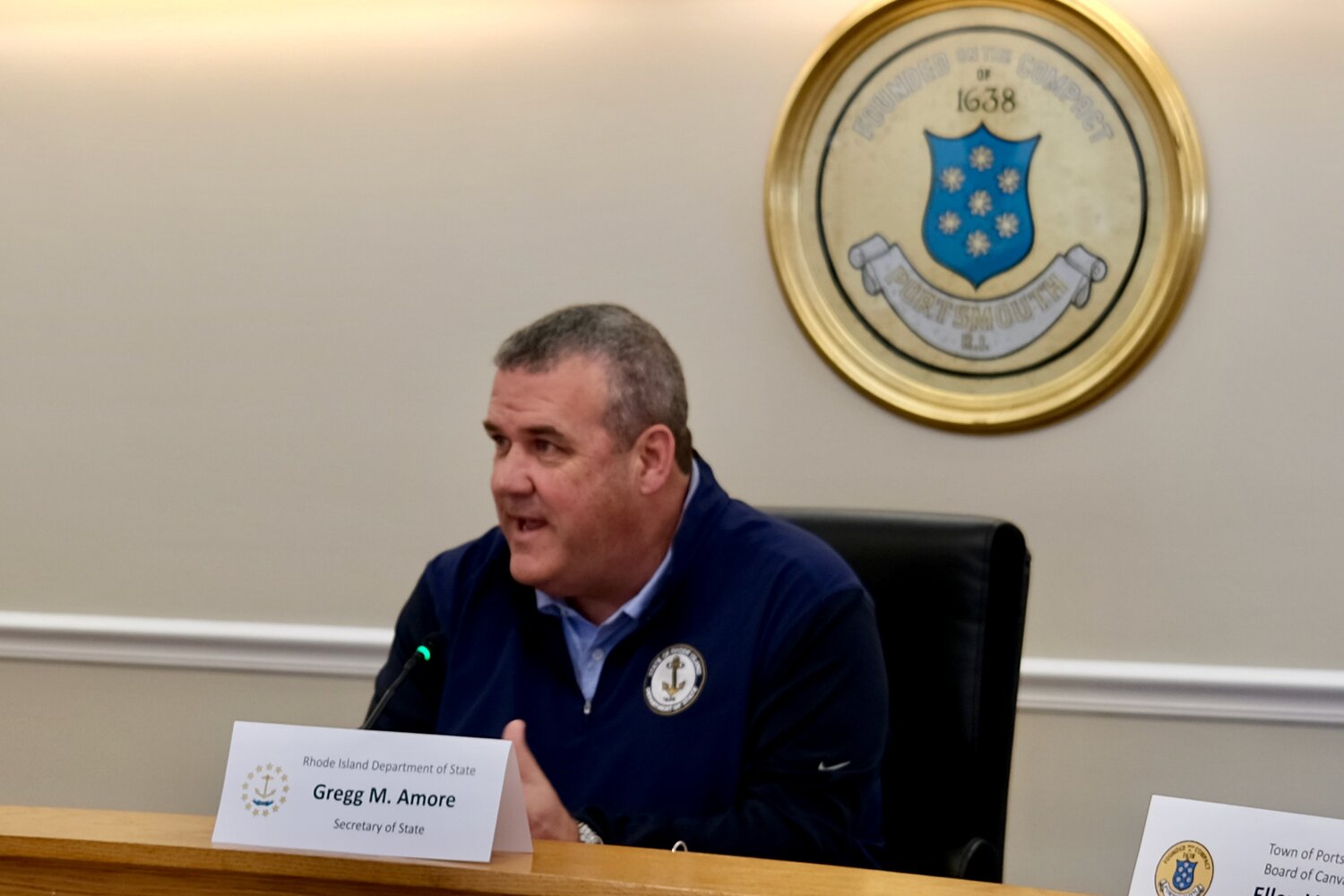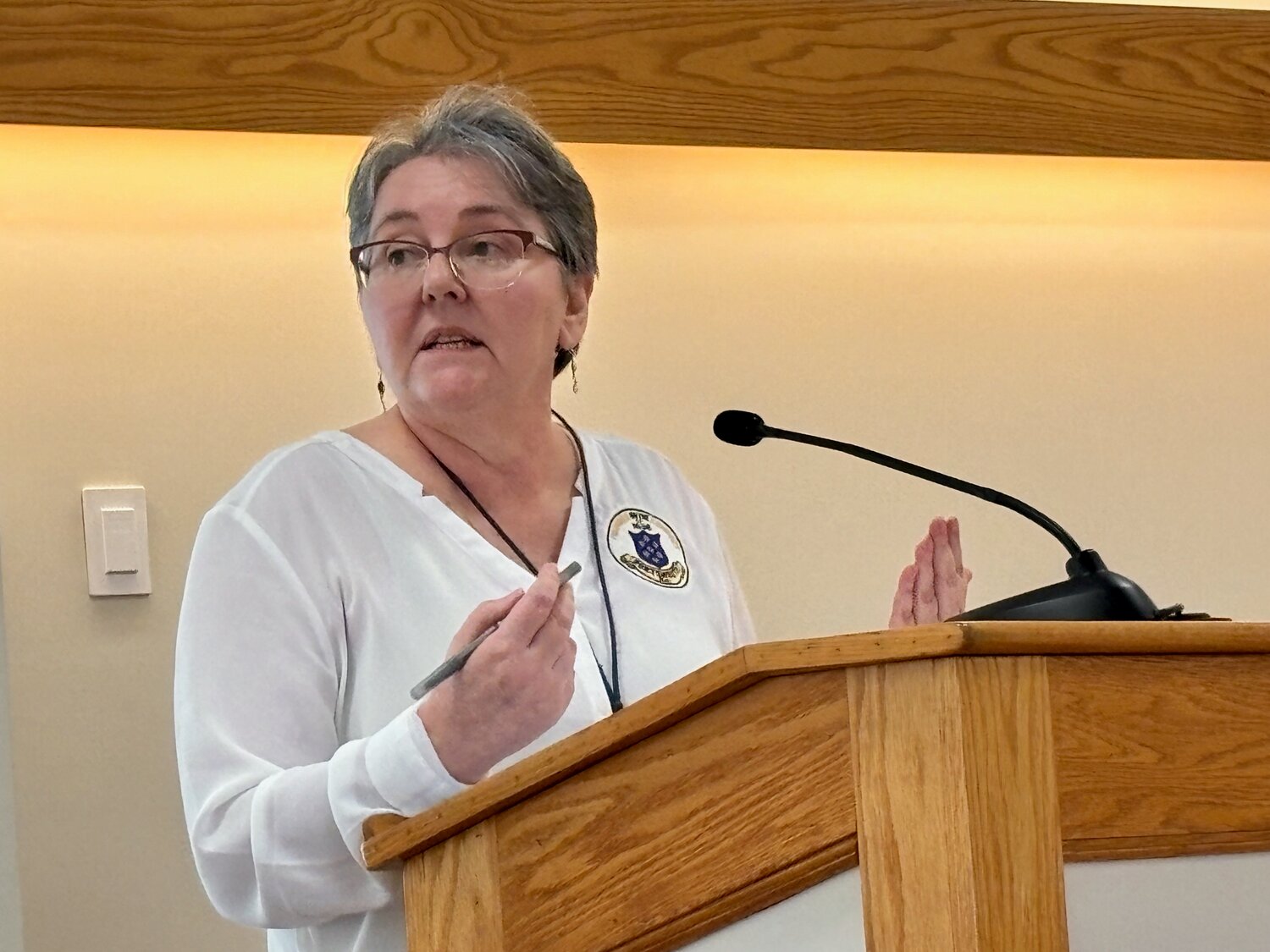Whether you’re 17 or 70, every vote matters
Portsmouth hosts election information session in advance of Presidential Preference Primary
PORTSMOUTH — You don’t typically see a 17-year-old filling out paperwork at Town Hall — especially on a weekend — but that’s exactly what Maciej Tabak was …
This item is available in full to subscribers.
Please log in to continue |
Register to post eventsIf you'd like to post an event to our calendar, you can create a free account by clicking here. Note that free accounts do not have access to our subscriber-only content. |
Day pass subscribers
Are you a day pass subscriber who needs to log in? Click here to continue.
Whether you’re 17 or 70, every vote matters
Portsmouth hosts election information session in advance of Presidential Preference Primary
PORTSMOUTH — You don’t typically see a 17-year-old filling out paperwork at Town Hall — especially on a weekend — but that’s exactly what Maciej Tabak was doing on Sunday.
The Portsmouth High School junior, in fact, was registering to vote thanks to a new state law that recently went into effect: Any 17-year-old who turns 18 by the general election on Nov. 5 may now vote in the Presidential Preference Primary (PPP), which is April 2 in Rhode Island.
Tabak turns 18 on Oct. 13, so he fits the bill. He showed up Sunday afternoon at Town Hall to attend “Primaries & Pizza,” a voter information session hosted by Registrar of Voters Jacqueline Schulz. The event featured a panel of both state and local officials: R.I. Secretary of State Gregg Amore; Nick Edwards, the elections information coordinator from the R.I. Department of State; Portsmouth Board of Canvassers members Ellen Vadney and Mark Kanter, plus two alternates; and Michael Costello, a local poll worker. Sunday was also the deadline to register to vote, upgrade party affiliation or change an address for the PPP.
“In school they had announcements about the law changing recently — if you turn 18 by the (general) election, you can vote in the primaries. I didn’t know exactly much about all the details, but yesterday my girlfriend’s dad let me know that this was going on at Town Hall. I figured I’d come and find out more,” said Tabak.
After filling out his registration form, Canvassing Clerk Barbara Sherman showed Tabak how to navigate the state’s Voter Information Center website (vote.sos.ri.gov).
Although Tabak was the only 17-year-old present Sunday, he hopes others his age will follow his lead, saying it’s important to get involved in the democratic process early on, and that registering to vote was a simple process.
“It’s good to understand the basis of it and learn how it works beforehand,” he said, noting he plans to vote in the PPP next month.
During the discussion led by Schulz, Amore said only about 2,000 17-year-olds in Rhode Island would be eligible to vote in the PPP if they all registered and participated.
“But once that habit begins, we know that it will continue,” he said. “We hope that many 17-year-olds who fit this bill will come out in the (PPP) and in the regularly scheduled primary and general election.”
Started in a classroom
Amore said the idea for Rhode Island to follow other states in allowing certain 17-year-olds to vote germinated organically in a senior classroom at East Providence High School, where he used to teach history and civics.
“One of my students said they had received a phone call from Bernie Sanders’s campaign, asking him to get out there and vote in the primary,” Amore recalled. “The student said, ‘I can’t; I’m not 18.’ The person volunteering for the Sanders campaign said, ‘You’ll be 18 by the time of the (general) election, so you’ll be able to vote in the primary.’”
However, that was not the case in Rhode Island at the time.
“The student said we should do something about that, and our class researched that issue. We found that at the time, there were 16 states, plus the District of Columbia, that were already doing that. The interesting part was these were red states, purple states, blue states; this went across the political spectrum,” Amore said.
A former member of the R.I. House of Representatives, Amore said for years he sponsored a bill to make the change. “All it took was for me to leave the House of Representatives to have that bill passed under someone else’s sponsorship,” he said to laughs. “The reality is, you should allow someone who’s already going to be able to vote in the general election to be part of the entire process. I think that’s common sense.”
Do younger folks care?
Kanter, of the local canvassing board, said that unfortunately his conversations with people in their 20s have revealed most of them are not confident their vote will make a difference.
“We live in a society where there are two major parties,” Kanter said. “They do not like that, either. They would love to see independents, they would love to see rank-choice voting. How do we get beyond that? We’re in this system that we have, and those kids are the future.”
Amore agreed, saying that’s why his team has visited 55 high schools in Rhode Island to conduct lessons on the history of voting rights in the United States — something that otherwise may get lost in the regular curriculum. The state also has a student liaison program in which AP students from more than 40 different schools meet with his office once a month, he said.
“We’re giving students the opportunity to hear about the struggle to access the right to vote and how important that has been for many. We try to point out why their vote matters,” said Amore, adding he sympathizes with how young people may feel today.
“These kids have grown up in a time where there is vitriol. They’ve never seen the art of compromise. They have not see what Madisonian democracy looks like,” he said. His office urges young voters to think about “what can be, and what your role is in the future. We try to make the case that there is an impact that a vote has in every race.”
Asked about those comments afterward, Tabak acknowledged many young people like himself have problems with the current political system in the U.S.
“A lot of times it does seem like that, so I completely understand that and sometimes feel the same because we’re gotten into this two-party system,” he said.
Impact of local races
Vadney, with the local canvassing board, pointed out that the local races and referendum questions are more impactful to voters than the presidential election.
“That’s where the rubber meets the road, and where political party matters less,” she said.
Edwards agreed, and pointed to a 2022 Narragansett School Committee race that came down to just a single vote.
“So, every vote does count,” he said.
Next week: More about Sunday’s voter information session, including the election process itself, as well as voter security.












